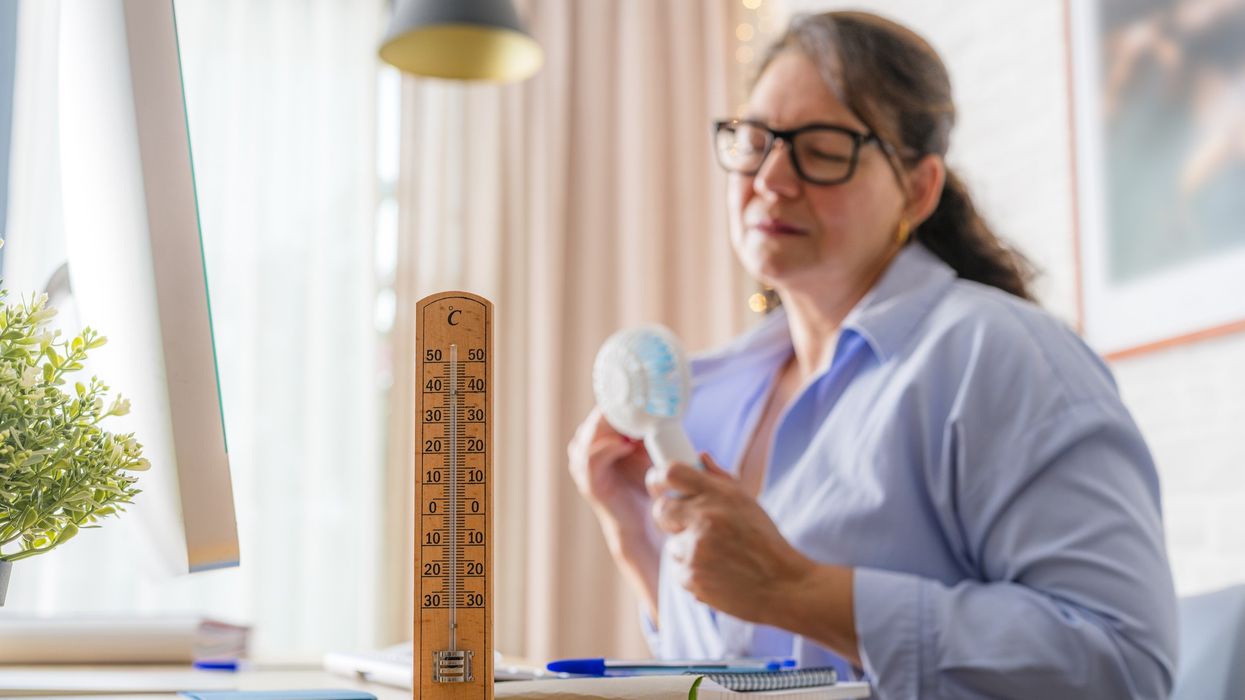As temperatures across the UK continue to rise, so too do the health risks associated with extreme heat. While sunburn and dehydration are well-known dangers, several hidden threats linked to heat waves often go unnoticed. With climate change intensifying the frequency and severity of hot spells, some forecasts suggesting 40 °C days could become a regular feature in the next 12 years, it’s essential to understand these lesser-known risks and how to protect yourself.
1. Skin reactions triggered by common medications
Certain widely-used medications can increase sensitivity to sunlight, making people more prone to rashes, blistering, and sunburn—even on cloudy days. This includes nonsteroidal anti-inflammatory drugs (NSAIDs) like ibuprofen, some antibiotics such as doxycycline, statins, antidepressants, and hormone replacement therapy (HRT).
If you are taking these medications, apply a broad-spectrum sunscreen with SPF 30 or higher, wear protective clothing, and limit your exposure to direct sunlight. It’s also worth consulting your pharmacist to confirm whether your medicines are photosensitising.
2. Medication breakdown in high temperatures
Many people are unaware that heat can reduce the effectiveness of certain medications. Medicines stored in hot environments—such as parked cars, near windows, or in steamy bathrooms—may degrade or fail to work properly.
Insulin, for example, can lose potency if not kept within the recommended temperature range. Always check the storage instructions on packaging and use a cool bag or insulated storage when travelling with essential medicines.
3. Strain on the heart and lungs
Heatwaves place added stress on the cardiovascular and respiratory systems. People with pre-existing heart conditions, high blood pressure, or asthma may be particularly vulnerable. According to the UK Health Security Agency (UKHSA), even moderate increases in temperature can result in a rise in emergency service usage and hospital admissions.
If you or someone you care for has a heart or lung condition, monitor symptoms closely during warm spells. Avoid strenuous activity during peak heat hours (typically 11am to 3pm) and stay indoors in a cool environment where possible.
4. Heat exhaustion that escalates into emergency
Heat exhaustion occurs when the body overheats and cannot cool itself effectively. Symptoms include dizziness, muscle cramps, excessive sweating, nausea, rapid pulse, and fainting. If untreated, this can progress to heatstroke, a medical emergency.
According to NHS guidance, anyone showing signs of heat exhaustion should be moved to a cool place, given fluids, and cooled down within 30 minutes. If symptoms persist beyond this period, dial 999 immediately.
5. Dehydration and kidney problems
Excessive heat leads to fluid loss through sweating, increasing the risk of dehydration. For individuals taking medications such as diuretics, ACE inhibitors, lithium, or NSAIDs, the risk of kidney damage becomes more significant when fluids are lost.
To avoid complications, drink plenty of water throughout the day, even if you don’t feel thirsty. Diluted squash and oral rehydration solutions can also help maintain electrolyte balance. Avoid alcohol and excessive caffeine, both of which contribute to fluid loss.
6. Poor sleep and mental health effects
Hot nights can make it difficult to fall and stay asleep, leading to fatigue and irritability. Prolonged heat exposure can also worsen anxiety, agitation, and even contribute to a rise in suicide rates, according to some studies. The psychological toll of repeated extreme weather events is now recognised as a public health issue.
To maintain good sleep hygiene, keep your bedroom cool and ventilated. Close blinds during the day to block out sunlight and open windows in the evening when outdoor temperatures drop. Use light bedding and consider a fan if the room temperature stays below 35 °C.
7. Long-term damage from repeated exposure
Repeated exposure to extreme heat may contribute to chronic health conditions over time. This includes increased risk of kidney disease, cardiovascular strain, and metabolic disorders. UK health experts warn that, without mitigation and adaptation, the number of heat-related deaths could rise significantly in the coming years.
Heatwaves disproportionately affect the elderly, children, outdoor workers, and those with existing health conditions. As such, public awareness and preparedness are key.
Quick protection tips
- Stay hydrated: Aim to drink water regularly. Add squash or electrolyte tablets if needed.
- Keep medicines cool: Store according to label instructions, away from sunlight and moisture.
- Stay indoors during peak heat: Avoid direct sun between 11am and 3pm.
- Wear protective clothing: Lightweight fabrics, wide-brimmed hats, sunglasses, and sunscreen (SPF 30+) are all essential.
- Keep your home cool: Shut blinds, use fans below 35 °C, and open windows when cooler outside.
- Recognise danger signs: Learn the symptoms of heat exhaustion and stroke, and respond quickly.
Why this matters
A yellow heat-health alert is currently in effect across seven regions in England, including London, the Midlands, and the South East. Temperatures are expected to rise to around 32 °C this weekend, which may meet official criteria for a heatwave.
With the UK facing more extreme weather due to climate change, recognising and responding to these hidden health risks can save lives. Whether you're managing your own health, caring for family members, or working outdoors, being prepared for the heat is now more important than ever.





